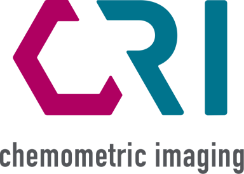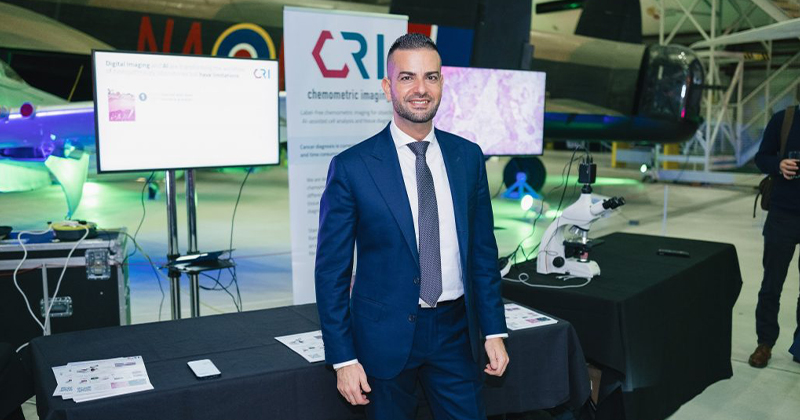Developing new medical technologies based on high-speed, low-cost Raman digital imaging and artificial intelligence has the potential to transform cancer diagnosis and treatment.
At the Frontier IP Showcase on 6 December, CHARM coordinator Cambridge Raman Imaging presented how it is working to develop such technologies with the aim of bringing the emerging field of digital histopathology to the next level.
The company’s presentation and discussion focused on its innovative coherent Raman imaging technology. This technology is unprecedentedly innovative for several reasons. It uses graphene-based ultra-fast fibre lasers and artificial intelligence to diagnose and monitor tumours. It also creates digital images that histopathologists can view remotely, thereby removing the need for chemical staining of cells and tissue. Finally, the technology is also more compact and cheaper than existing state-of-the-art systems and can be used in a clinical environment. The Showcase event, held at the Cambridge-adjacent Imperial War Museum, provided various Frontier IP portfolio companies – including Cambridge Raman Imaging – with the opportunity to present, demonstrate and discuss their new technologies aimed at helping tackle fundamental challenges in areas ranging from climate to energy, food, water, and health.
Frontier IP is a specialist in commercialising intellectual property generated by academics, universities, and other partners in the United Kingdom.
Dr Matteo Negro, CEO of Cambridge Raman Imaging, gave a presentation at the event and demonstrated the Raman imaging technology on a stand at the evening reception that followed. The most exciting aspect of the technology, he explained, is its potential to radically improve individuals’ lives.
“Cambridge Raman Imaging’s novel technology for tissue analysis promises to be both highly effective and less intrusive than current options,” said Dr Negro. “Combined with artificial intelligence, this instrument will offer histopathologists a reliable, fast and low-cost Clinical Decision Support System for cancer diagnosis and personalised cancer therapy.”

